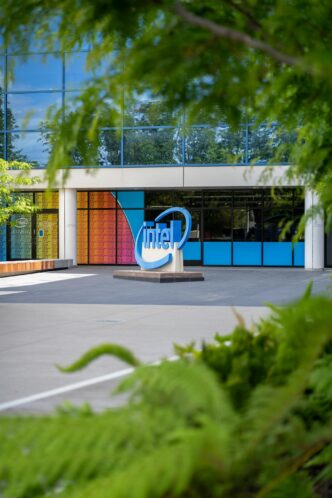Effect of AI on Customer journey is no more a myth but a digital revolution. This revolution has reshaped the mode of interaction between businesses and customers. Today’s consumers are more informed, connected, and demanding than ever before. They want a seamless, personalized, and intuitive experiences at every step of their journey— right from sourcing and discovering a product, making a purchase, to seeking support afterward.
In response, businesses are turning to artificial intelligence (AI) to stay ahead and meet up with customer expectations. AI’s ability to analyze vast datasets, predict customer needs, and automate routine tasks is revolutionizing customer experiences. It’s not just a trend; it’s the new standard. Companies that effectively integrate AI into their customer journey strategies are seeing higher engagement, improved satisfaction, and a lasting loyalty.
Understanding the Modern Customer Journey
Gone are the days when customer journeys were simple – linear processes. Modern journeys are complex and dynamic, it involve multiple touchpoints—both online and offline. Customers might discover a brand on social media, research it on a review platform, and make a purchase through a mobile app, all while expecting a consistent and personalized experience.
This complexity creates challenges for businesses, among which are:
- How can they anticipate customer needs at each touchpoint?
- How do they deliver consistent messaging and experiences across channels?
- How can they ensure efficiency without losing the human touch?
AI has come to provides answers to these questions, acting as a powerful ally in delivering tailored, data-driven customer experiences.
How AI Enhances Every Stage of the Customer Journey
1. Awareness: Capturing Attention with Precision
The awareness stage is where businesses make their first impression. AI-powered tools like predictive analytics and natural language processing help companies identify their target audience with laser precision. These tools analyze consumer behavior, browsing patterns, and demographics to create hyper-personalized campaigns.
For instance, streaming giant Netflix uses machine learning algorithms to curate content suggestions based on viewer preferences, ensuring users are hooked from the moment they log in. Similarly, AI helps marketers craft ads that resonate emotionally, increasing engagement and brand recall.
2. Consideration: Building Confidence and Trust
During the consideration stage, customers are evaluating their options. AI simplifies this process by providing relevant and timely information.
- Chatbots: AI-powered chatbots engage with customers 24/7, answering questions and resolving doubts in real-time. They’re not just efficient—they’re also scalable, capable of handling thousands of interactions simultaneously.
- Product Recommendations: Retailers like Myntra enhance the shopping experience with AI tools like MyFashionGPT, which offers style recommendations based on user preferences and natural language queries.
AI not only boosts customer confidence but also reduces the time and effort they need to make decisions.
3. Decision: Simplifying the Conversion Process
AI shines in converting leads into customers by removing friction from the decision-making process.
- Dynamic Pricing: AI analyzes demand, competition, and customer behavior to offer personalized discounts and optimal pricing.
- Smart Shopping Experiences: Retailers like American Eagle use computer vision and machine learning in fitting rooms to recommend clothing sizes and styles, creating a seamless and personalized experience.
These AI-driven innovations ensure that customers move effortlessly from consideration to purchase.
4. Loyalty: Sustaining Engagement Post-Purchase
The journey doesn’t end with a purchase. AI plays a pivotal role in nurturing long-term relationships and building loyalty.
- Proactive Engagement: Predictive analytics helps businesses identify customers at risk of churning and re-engage them with personalized offers.
- Feedback Analysis: Tools like HubSpot’s AI-powered feedback analyzers identify patterns in customer reviews, allowing businesses to improve their products and services.
AI not only helps retain customers but also transforms them into brand advocates.
Key Benefits of AI in Customer Journeys
Here’s why AI is indispensable in modern customer experiences:
- Personalization: By analyzing individual preferences, AI delivers experiences tailored to each customer, fostering emotional connections.
- Enhanced Efficiency: Automation reduces the burden of repetitive tasks, allowing teams to focus on strategic activities.
- Data-Driven Insights: AI transforms customer data into actionable insights, enabling continuous improvement.
- Unmatched Scalability: AI tools can handle millions of interactions without compromising quality, ensuring consistent customer satisfaction.
Real-World Examples: AI at Work
- Netflix: Beyond personalizing recommendations, Netflix uses AI to optimize production processes for original content, ensuring that it resonates with its audience.
- Decathlon: With an AI-powered digital assistant, Decathlon automated 65% of customer inquiries, reducing costs and enhancing satisfaction.
- Krafton: The gaming company utilized multilingual AI tools to provide efficient, tailored support to its global audience.
These examples highlight how AI transforms industries by aligning business goals with customer expectations.
Ways Businesses Can Harness AI in Customer Journey
| Business/Sector | How AI Can Be Used | Key Impact |
|---|---|---|
| Retail | Personalized product recommendations, demand prediction, and inventory management. | Enhanced personalization and customer loyalty. |
| Travel | Virtual assistants for trip planning, real-time booking management, and updates via messaging platforms. | Reduced friction in planning and improved satisfaction. |
| Financial Services | Fraud detection through real-time monitoring. Robo-advisors for personalized financial guidance. | Improved trust and accessible financial solutions. |
| Healthcare | Predictive care, AI chatbots for scheduling and symptom checking. Image recognition for diagnostics. | Reduced wait times and better access to medical services. |
| Entertainment | Personalized content recommendations on streaming platforms like Netflix and Spotify. | Increased customer retention through tailored options. |
| Automotive | AI assistants for navigation, safety, and self-driving technology. | Enhanced driving experience and vehicle safety. |
| Food & Beverage | Chatbots for orders and personalized menu suggestions in restaurants. | Faster service and tailored dining experiences. |
| Education | AI-powered tutors for personalized learning paths and real-time feedback. | Improved learning outcomes and accessibility. |
| Real Estate | Virtual property tours, market trend analysis, and chatbot support for financing queries. | Simplified property search and buyer convenience. |
| Hospitality | AI concierges for personalized recommendations and smart rooms with voice assistants. | Memorable and hyper-personalized guest experiences. |
Challenges and Ethical Considerations
While AI’s potential is undeniable, its implementation is not without challenges:
- Privacy Concerns: Customers are increasingly cautious about how their data is used. Businesses must prioritize transparency and ethical practices.
- Bias in Algorithms: AI systems can unintentionally perpetuate biases, leading to unfair outcomes. Regular audits and diverse training datasets are crucial.
- Maintaining Human Touch: As automation increases, businesses must find ways to preserve empathy and personal connections in customer interactions.
Addressing these challenges is key to building trust and maximizing AI’s impact.
The Future of AI in Customer Journeys
AI’s role in customer journeys is only set to grow. Emerging technologies like generative AI and sentiment-aware systems promise even greater personalization and efficiency. These tools will enable businesses to anticipate customer needs before they even arise, creating proactive and delightful experiences.
Additionally, hybrid AI-human models are emerging as the ideal solution, combining the efficiency of AI with the empathy of human interactions. This balanced approach ensures businesses can scale while maintaining meaningful connections.
Rounding up
AI is transforming the customer journey in ways that were unimaginable just a decade ago. From personalized recommendations to proactive engagement, it empowers businesses to exceed customer expectations consistently.
As competition intensifies, the brands that embrace AI will not only survive but thrive, leading the charge in delivering innovative, seamless, and memorable customer experiences.
















